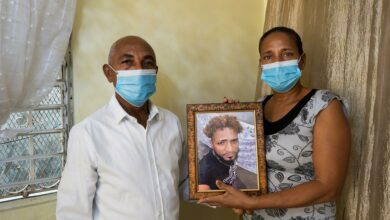New Zealand declares national emergency as cyclone rips through North Island

Sydney, Australia, Feb 14 (EFE).- New Zealand declared a national state of emergency on Tuesday for only the third time in history as Cyclone Gabrielle tore a path of destruction across the North Island, cutting off towns, causing landslides, floods and power outages, and forcing people to take refuge on roofs of submerged houses.
Gabrielle made landfall on Sunday and has grown in strength, with most damage done in the early hours of Tuesday morning. Roofs have been ripped off buildings, buildings submerged, trees blown down, landslides have taken out houses, and power and communications have been cut, mostly across the top of the North Island.
“This is an unprecedented weather event that is having major impacts across much of the North Island,” Minister for Emergency Management Kieran McAnulty said in a statement announcing the national emergency to aid the cyclone response.
The declaration applies to the regions of Auckland, Northland, Tairāwhiti, Bay of Plenty, Waikato, Hawke’s Bay and Tararua – covering much of the North Island.
“I want to acknowledge the situation that New Zealanders have been waking up to this morning – a lot of families displaced, a lot of homes without power, extensive damage done across the country,” Prime Minister Chris Hipkins said in a press conference Tuesday morning.
The MetService said in its latest update that wind gusts of over 150kph have been recorded in many North Island regions, closer to 170kph in exposed regions, and up to 110kph in New Zealand’s largest city of Auckland.
In the northeast region of Tairāwhiti, Gisborne has seen over 400mm of rain in the past 36 hours, with 200mm in Auckland, mostly overnight, as the storm continued to track eastward across the top of the North Island.
Photos posted to social media showed only the roofs of houses visible above submerged homes in the Hawke’s Bay town of Napier and people standing on roofs to escape floodwaters in nearby Hastings, as well as burst rivers in Gisborne, huge waves hitting coastal houses and breaking over waterfront streets in various coastal areas, washed out roads, and many state highways closed due to landslides and debris.
A 22-year-old had to swim from her bedroom window at 4am when the Esk River in the Hawke’s Bay breached its banks, with a neighbor trapped on a roof and another on a tractor on a raised section of gravel, local media outlet Stuff reported.
In west Auckland a volunteer firefighter was missing and one was in critical condition after a landslide crushed a house.
Gisborne was without power, internet and phone coverage and roads in and out of the region were blocked.
National power grid operator Transpower declared a Grid Emergency following the loss of electricity supply to the east coast regions of Gisborne and Hawke’s Bay, and warned that residents of those areas may be without power for “days to weeks, rather than hours.”
Energy Minister Megan Woods said 225,000 people in affected areas of the island are without power.
“This is the largest disruption to electricity infrastructure since (the 1988) Cyclone Bola,” Woods said.
Two hundred defense force staff had been deployed to help with the emergency, with hundreds on standby, Defense Minister Andrew Little said.
Climate Change Minister James Shaw had no doubt about the cause of the disaster on Tuesday.
“This is climate change. The impacts will get worse unless we act NOW to cut emissions quickly and adapt communities for the effects already here,” he wrote on Twitter.
Hipkins also said Tuesday morning that “this extreme weather event … probably the biggest we have seen in recent times comes hot on the heels of other extreme weather events that we have seen.”
Auckland is still recovering from the historic floods at the end of last month that left four people dead.
Gabrielle abruptly changed course over the weekend, dodging the Australian-administered Norfolk Islands, where a “red alert” had been declared on Saturday for her possible arrival. EFE





